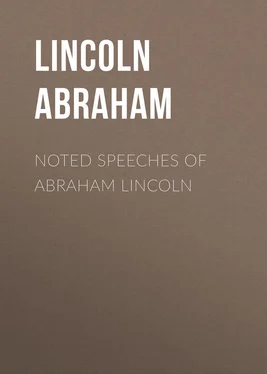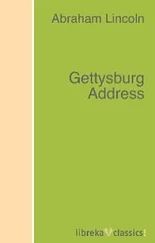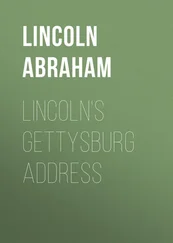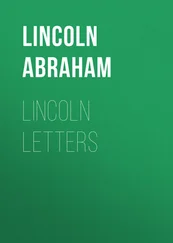Abraham Lincoln - Noted Speeches of Abraham Lincoln
Здесь есть возможность читать онлайн «Abraham Lincoln - Noted Speeches of Abraham Lincoln» — ознакомительный отрывок электронной книги совершенно бесплатно, а после прочтения отрывка купить полную версию. В некоторых случаях можно слушать аудио, скачать через торрент в формате fb2 и присутствует краткое содержание. Жанр: foreign_antique, foreign_prose, на английском языке. Описание произведения, (предисловие) а так же отзывы посетителей доступны на портале библиотеки ЛибКат.
- Название:Noted Speeches of Abraham Lincoln
- Автор:
- Жанр:
- Год:неизвестен
- ISBN:нет данных
- Рейтинг книги:4 / 5. Голосов: 1
-
Избранное:Добавить в избранное
- Отзывы:
-
Ваша оценка:
- 80
- 1
- 2
- 3
- 4
- 5
Noted Speeches of Abraham Lincoln: краткое содержание, описание и аннотация
Предлагаем к чтению аннотацию, описание, краткое содержание или предисловие (зависит от того, что написал сам автор книги «Noted Speeches of Abraham Lincoln»). Если вы не нашли необходимую информацию о книге — напишите в комментариях, мы постараемся отыскать её.
Noted Speeches of Abraham Lincoln — читать онлайн ознакомительный отрывок
Ниже представлен текст книги, разбитый по страницам. Система сохранения места последней прочитанной страницы, позволяет с удобством читать онлайн бесплатно книгу «Noted Speeches of Abraham Lincoln», без необходимости каждый раз заново искать на чём Вы остановились. Поставьте закладку, и сможете в любой момент перейти на страницу, на которой закончили чтение.
Интервал:
Закладка:
Abraham Lincoln
Noted Speeches of Abraham Lincoln / Including the Lincoln-Douglas Debate
FOREWORD
This series, American History in Literature, will include only the best-known American speeches, – those which commemorate the most important events in the history of our country.
The biographical sketches have been included for the convenience of the student and reader, and for the schoolboys and girls, who are constantly seeking concise accounts of the lives of our great Americans.
This present volume, the first of the series, gives to the student and reader Abraham Lincoln’s most noted speeches in compact form, making a chronological anthology.
L. M. B.ABRAHAM LINCOLN
In a little log-cabin in Hardin County, Kentucky, on the 12th of February, 1809, was born a future President of the United States, Abraham Lincoln.
When Abraham was seven years old, his father, Thomas Lincoln, moved with his family to Indiana. It was a cold, dreary winter for them in the rude shed which Abraham, knowing well how to handle an ax, had helped his father to build. The following autumn found them in a better cabin, but brought to Abraham the loss of his mother, Nancy Hanks Lincoln, leaving his sister Sarah, eleven years old, to care for the household. But the next year the little home was much changed; for a stepmother had come, a woman of energy and thrift, who provided the children with comforts before unknown to them. She became very fond of Abraham and encouraged his inclination for reading and study. One year would probably cover all the schooling he ever had, but he set to work with a will to educate himself, sometimes walking miles to borrow a book.
In the spring of 1830 Thomas Lincoln sold his farm in Indiana and moved to Illinois. Abraham, though wishing to do something for himself, remained with his father about a year longer, to see him comfortably settled in his new home. Then, in April, he went on his second expedition to New Orleans in a flatboat. On his return his employer placed him in charge of a store at New Salem.
When he was twenty-three years old, he enlisted in what was called the Black Hawk War, and was chosen captain of his company. When the war was at an end and he returned home, he was told that the people wished to send him to the legislature. He agreed to be a candidate, but was not elected. All this time he did not give up the idea of becoming a lawyer, and soon after the next election, at which he received a large majority, he commenced the study of law.
In 1837 he left New Salem and removed to Springfield, which was ever after his home. He was elected to the Illinois legislature four times in succession and again in 1846, and the following year he was chosen to be a Representative in Congress. At the close of his two years in Congress, Mr. Lincoln returned to Springfield and applied himself to the practice of law. But very soon he was again taking an active part in the politics of his State. It was at the State convention held in Bloomington in 1856, at which time the Republican party of Illinois was finally organized, that Mr. Lincoln made the wonderful address which has become famous as his “lost speech.”
Eighteen fifty-eight was the year of the noted Lincoln-Douglas Debate that brought Mr. Lincoln conspicuously before the whole country. Two years later, when visiting New York, he was invited by a party of Republicans to deliver a speech at Cooper Union. This speech helped to increase his popularity. This same year, 1860, Mr. Lincoln was elected to be President of the United States, and on the 4th of March, 1861, delivered his First Inaugural Address in the presence of thousands of people. The Emancipation Proclamation, which gave the slaves their freedom, was issued to take effect on the 1st of January, 1863; and in this act Mr. Lincoln made his name great. It was in this same year that he delivered the famous Gettysburg Address.
Mr. Lincoln was elected to the Presidency for the second term, but lived only a few weeks afterward. He was shot in a theater in Washington on Friday evening, the 14th of April, 1865.
“He grew according to the need,
and as the problem grew,
so did his comprehension of it.”
COOPER INSTITUTE SPEECH
Mr. President and Fellow-Citizens of New York: – The facts with which I shall deal this evening are mainly old and familiar; nor is there anything new in the general use I shall make of them. If there shall be any novelty, it will be in the mode of presenting the facts, and the inferences and observations following that presentation. In his speech last autumn at Columbus, Ohio, as reported in the New York Times , Senator Douglas said: “Our fathers, when they framed the government under which we live, understood this question just as well, and even better, than we do now.”
I fully indorse this, and I adopt it as a text for this discourse. I so adopt it because it furnishes a precise and an agreed starting-point for a discussion between Republicans and that wing of the Democracy headed by Senator Douglas. It simply leaves the inquiry: What was the understanding those fathers had of the question mentioned?
What is the frame of government under which we live? The answer must be, “The Constitution of the United States.” That Constitution consists of the original, framed in 1787, and under which the present government first went into operation, and twelve subsequently framed amendments, the first ten of which were framed in 1789.
Who were our fathers that framed the Constitution? I suppose the “thirty-nine” who signed the original instrument may be fairly called our fathers who framed that part of the present government. It is almost exactly true to say they framed it, and it is altogether true to say they fairly represented the opinion and sentiment of the whole nation at that time. Their names, being familiar to nearly all, and accessible to quite all, need not now be repeated.
I take these “thirty-nine,” for the present, as being “our fathers who framed the government under which we live.” What is the question which, according to the text, those fathers understood “just as well, and even better, than we do now”?
It is this: Does the proper division of local from Federal authority, or anything in the Constitution, forbid our Federal Government to control as to slavery in our Federal Territories?
Upon this, Senator Douglas holds the affirmative, and Republicans the negative. This affirmation and denial form an issue; and this issue – this question – is precisely what the text declares our fathers understood “better than we.” Let us now inquire whether the “thirty-nine,” or any of them, ever acted upon this question; and if they did, how they acted upon it – how they expressed that better understanding. In 1784, three years before the Constitution, the United States then owning the Northwestern Territory and no other, the Congress of the Confederation had before them the question of prohibiting slavery in that Territory; and four of the “thirty-nine” who afterward framed the Constitution were in that Congress, and voted on that question. Of these, Roger Sherman, Thomas Mifflin, and Hugh Williamson voted for the prohibition, thus showing that, in their understanding, no line dividing local from Federal authority, nor anything else, properly forbade the Federal Government to control as to slavery in Federal territory. The other of the four, James McHenry, voted against the prohibition, showing that for some cause he thought it improper to vote for it.
In 1787, still before the Constitution, but while the convention was in session framing it, and while the Northwestern Territory still was the only Territory owned by the United States, the same question of prohibiting slavery in the Territory again came before the Congress of the Confederation; and two more of the “thirty-nine” who afterward signed the Constitution were in that Congress, and voted on the question. They were William Blount and William Few; and they both voted for the prohibition – thus showing that in their understanding no line dividing local from Federal authority, nor anything else, properly forbade the Federal Government to control as to slavery in Federal territory. This time the prohibition became a law, being part of what is now well known as the ordinance of ’87.
Читать дальшеИнтервал:
Закладка:
Похожие книги на «Noted Speeches of Abraham Lincoln»
Представляем Вашему вниманию похожие книги на «Noted Speeches of Abraham Lincoln» списком для выбора. Мы отобрали схожую по названию и смыслу литературу в надежде предоставить читателям больше вариантов отыскать новые, интересные, ещё непрочитанные произведения.
Обсуждение, отзывы о книге «Noted Speeches of Abraham Lincoln» и просто собственные мнения читателей. Оставьте ваши комментарии, напишите, что Вы думаете о произведении, его смысле или главных героях. Укажите что конкретно понравилось, а что нет, и почему Вы так считаете.












